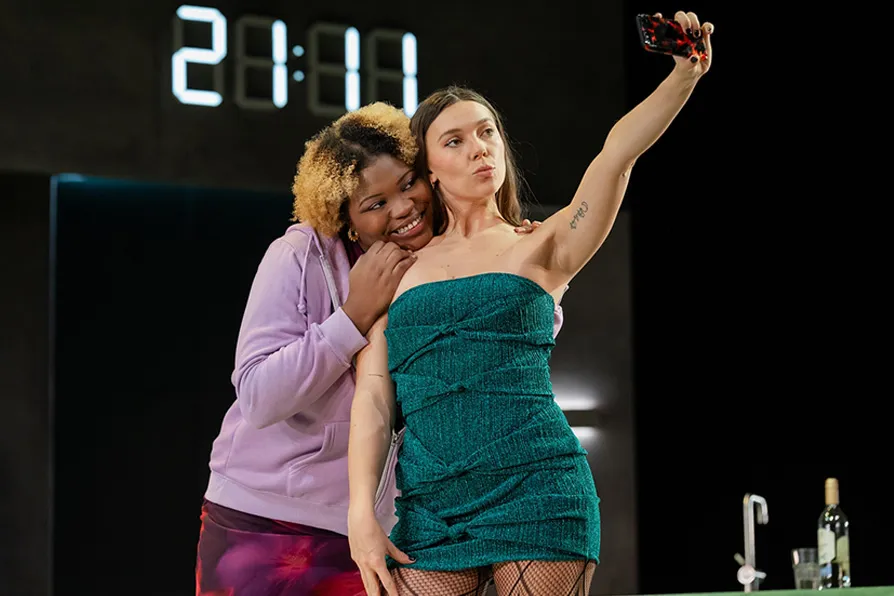STEPHANIE DENNISON and ALFREDO LUIZ DE OLIVEIRA SUPPIA explain the political context of The Secret Agent, a gripping thriller that reminds us why academic freedom needs protecting
SIMON PARSONS applauds an imaginative and absorbing updating of Strindberg’s classic

 Sesley Hope and Synnove Karlse in House Party [Pic: Ikin Yum]
Sesley Hope and Synnove Karlse in House Party [Pic: Ikin Yum]
The House Party
Bristol Old Vic
★★★★
STRINDBERG’S naturalistic drama of 1888 exploring class and sexuality was ground breaking at the time. Not only were its controversial themes played out in real time without scene changes, but also a psychologically complex servant was a protagonist. Over a century later, both the style and subject matter have become the bedrock of much TV drama and undergone numerous reworkings on stage.
With all this in mind, Laura Lomas’s modernisation of Miss Julie was always facing an uphill struggle to rejuvenate such well-worn territory even with the aid of Frantic Assembly’s dynamic, stylised movement sequences.
The title character is transformed into a self-centred, hedonistic, emotional parasite — a largely unsympathetic example of a spoilt, selfie-loving teen on a drinking binge during her 18th birthday party. Her self-destructive streak continues as she flirts with Jon, her absent father’s employee and best friend’s boyfriend.
Although Jon is a fairly straight reworking of the original servant Jean, with all his aspirations, complex motivations and ambiguous relationship to Julie, it is the other relatively minor character, the conventional servant Christine, that shows far more development. As a working-class, black friend of Julie on the eve of going to Cambridge University, her betrayal by the other characters is the emotional heart-wrench at the core of this production.
The cast are outstanding with Synnove Karlsen giving a magnificent performance on her theatrical debut as Julie, counteracting her unsympathetic qualities with boundless energy and barely concealed insecurities, while Tom Lewis as Jon is a worthy foil. His street-wise outlook on the world along with an emotional naivety make for an engagingly charismatic portrayal.
It is Sesley Hope’s Christine, though, that resonates most strongly. Her mature and intelligent supportive role to Julie gradually develops into something far more pivotal as we see the drama unfold and hidden aspects of her character and outlook surface before being traumatised and reshaped by events.
Holly Race Roughan’s high energy, tightly woven direction and a looming digital clock create a sense of inevitability to the outcome, so the unexpected final scene, set years later, with Christine and her daughter in their own place, is a fascinating rebalancing of the social dynamics and focus of the original play and concludes an imaginative and absorbing updating of Strindberg’s classic.
Runs until May 3, box office: bristololdvic.org.uk

In his second round-up, EWAN CAMERON picks excellent solo shows that deal with Scottishness, Englishness and race as highlights

Borrowed Time: Lennon’s Last Decade, Parthenope, Where Dragons Live and Thunderbolts* reviewed by MICHAL BONCZA and MARIA DUARTE

Badenoch under pressure to sack shadow justice secretary









